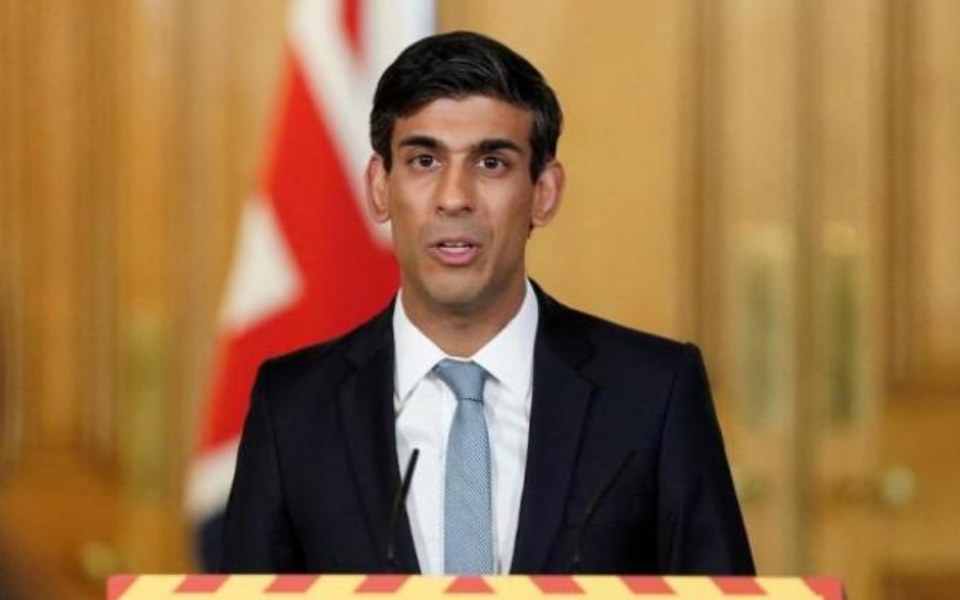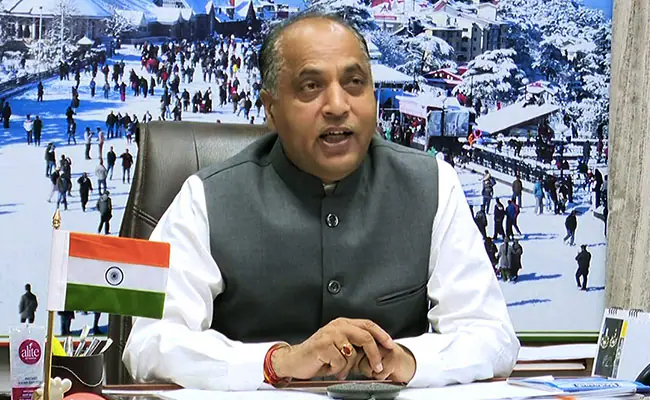London, Apr 16: British Prime Minister Rishi Sunak faces very vocal resistance against his plans to effectively ban smoking for anyone aged 15 and younger as a new bill comes up for a vote in the House of Commons on Tuesday.
The British Indian leader proposed the Tobacco and Vapes Bill last year and declared his vision for creating a “smokefree generation” by making it an offence to sell tobacco products to anyone born after January 1, 2009, which covers children aged 15.
Once it clears its parliamentary journey, the new legislation will introduce some of the world's strictest anti-smoking laws in the country.
“I propose that in future we raise the smoking age by one year, every year. That means a 14-year-old today will never legally be sold a cigarette and that they — and their generation — can grow up smoke-free. We know this works,” Sunak had declared at the Conservative Party conference in October last year.
As there is Opposition backing for the bill in Parliament and governing Conservative MPs have a free vote on the bill, any Tory votes against the bill will not be seen as a full-blown rebellion against the Prime Minister.
But two of Sunak’s immediate predecessors, Liz Truss and Boris Johnson, have been leading a very vocal group of Tories who plan to vote against the bill as “un-Conservative” and taking away choice from the public.
“The truth is that there is no safe level of tobacco consumption. It is uniquely harmful, and that is why we are taking this important action today to protect the next generation,” said UK Health Secretary Victoria Atkins.
“This Bill will save thousands of lives, ease the strain on our NHS [National Health Service], and improve the UK’s productivity,” she said.
Under the new law, smoking itself would not be criminalised, and anyone who can legally buy tobacco will not be prevented from doing so.
The ban aims to stop people from smoking even before they start as the government pointed to its highly addictive nature, with four in five smokers picking it up before the age of 20, remaining addicted for life.
If passed, the bill will progress to the next stage, bringing the UK closer to creating the first smoke-free generation, the government says.
Under the plans, trading standards officers would get new powers to issue on-the-spot 100-pound fines to shops selling tobacco or vapes to children, with all the money raised going towards further enforcement.
"This historic legislation will consign smoking to the 'ash heap of history'," said Deborah Arnott, head of the charity Action on Smoking and Health (ASH).
The Tobacco and Vapes Bill would also give the government new powers to tackle youth vaping by restricting flavours and regulating the way that vapes are sold and packaged to make them less appealing to children.
The UK's Department of Health and Social Care (DHSC) said while vaping can play a useful role in helping adult smokers to quit, non-smokers and children should never vape.
The long-term health impacts of vaping are unknown, and the nicotine contained within them can be highly addictive, it warned.
According to official figures, responsible for around 80,000 deaths annually, smoking is the UK’s single biggest preventable killer and costs the NHS and economy an estimated GBP 17 billion a year — more than the GBP 10 billion annual revenue from tobacco taxation.
Let the Truth be known. If you read VB and like VB, please be a VB Supporter and Help us deliver the Truth to one and all.
Visakhapatnam (PTI): Shafali Verma hit a blistering unbeaten 69 as India made short work of a paltry target to outclass Sri Lanka by seven wickets in the second Women’s T20 International here on Tuesday.
India now lead the five-match series 2-0 after another one-sided victory, having restricted Sri Lanka to a modest 128 for 9 through a collective display of disciplined bowling from the spin trio of seasoned Sneh Rana, ably complemented by young spinners Vaishnavi Sharma and Shree Charani.
During the chase, vice-captain Smriti Mandhana (14) fell cheaply but Shafali, enjoying new found confidence after a stellar show in the World Cup final, sent the bowlers on a leather-hunt during her 34-ball knock, winning it for her team in just 11.5 overs.
The hosts have now completed back-to-back successful chases within 15 overs which speaks volumes about the unit's sky-high confidence.
Shafali's innings had 11 punchy boundaries apart from a maximum.
The floodgates opened when left-arm spinner Inoka Ranaweera bowled a few flighted deliveries and Shafali would step out everytime to hit her over extra cover. Her footwork against slow bowlers was immaculate whether stepping out to loft the ball or rocking back to punch or pull.
Seeing her confidence, the newly appointed Delhi Capitals skipper Jemimah Rodrigues (26 off 15 balls) also attacked as the duo added 58 runs in just 4.3 overs.
By the time Rodrigues was out trying to hit one six too many, the match as a contest was over. Shafali completed her half-century off just 27 balls and completed the formalities in a jiffy.
Earlier, off-spinner Rana, who got a look-in after Deepti Sharma was ruled out due to fever, showed her utility keeping the Lankan batters under tight leash with figures of 1 for 11 in 4 overs, including a maiden which certainly is a rarity in T20 cricket.
Charani, who made an impression during India's ODI World Cup triumph, took 2 for 23 in her quota of overs, while Vaishnavi after an impressive debut in the opening encounter, finished with 2 for 32, not letting the Islanders get easy runs in her second spell.
The last six wickets fell for just 24 runs, but what stood out during India’s bowling effort was their superb ground fielding. After a patchy show in the previous game, the improved sharpness in the field resulted in three run-outs.
Sri Lankan skipper Chamari Athapaththu (31 off 24 balls) looked in good nick as she deposited length deliveries from seamers Kranti Gaud and Arundhati Reddy over the ropes but it was Rana, who kept her quiet by repeatedly pitching on good length.
Unable to manoeuvre the strike and with the big hits suddenly drying up, Athapaththu chanced her arm at another delivery in which Rana had shortened the length slightly.
Not having transferred the weight into the lofted shot, Athapaththu's hoick was pouched cleanly by Amanjot Kaur at long-off.
This was after Athapaththu's opening partner Vishmi Gunaratne (1) had offered a simple return catch to Gaud.
Hasini Perera (22 off 28 balls) and Harshitha Samarawickrama (33 off 32 balls) did stitch a stand of 44 but they could never set the tempo against the Indian spin troika.
Once Hasini offered a tame return catch off a Charani full-toss, Sri Lankans never recovered and lost wickets in a heap towards the end.





